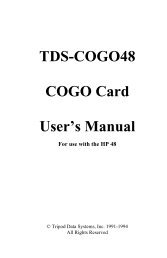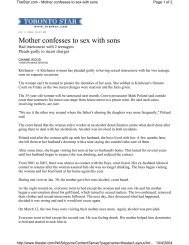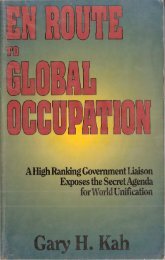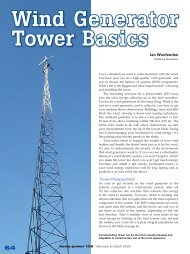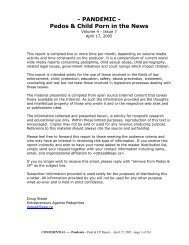G. Edward Griffin - The Fearful Master - PDF Archive
G. Edward Griffin - The Fearful Master - PDF Archive
G. Edward Griffin - The Fearful Master - PDF Archive
You also want an ePaper? Increase the reach of your titles
YUMPU automatically turns print PDFs into web optimized ePapers that Google loves.
and Spanish. <strong>The</strong>y practice medicine in the Congo, not for profit, but for the benefit of the<br />
underdeveloped populations. <strong>The</strong> political questions did not concern them. Being doctors,<br />
they had no position to take regarding matters which they felt were solely the responsibility<br />
of the Katangese government and UN authorities. What was their concern, however, was<br />
the health and well-being of the population in their care. <strong>The</strong> prevention of wounds was of<br />
equal concern to them as the prevention of sickness. Consequently, they were well within<br />
their role of physicians when they issued their protest and declared: "It is not as active<br />
partisans of an independent Katanga that the civilian doctors of Elisabethville have<br />
thought it their duty to warn the world conscience, but strictly as citizens of the world,<br />
besides being bound by the Hippocratic oath which compels them to fight against death<br />
wherever it may come from."<br />
3. After teaching at City College and the University of Minnesota, Professor Ernest van<br />
den Haag became (and still is) a member of the faculty of New York University and the<br />
New School for Social Research. He lectures widely and is the author of Education as an<br />
Industry and of <strong>The</strong> Fabric of Society (with Ralph Ross), the latter a widely used textbook<br />
in the social sciences. He has published many articles in American and foreign learned<br />
journals. Professor van den Haag is a fellow of the American Sociological Association and<br />
of the Royal Economic Society.<br />
4. In the original source material, the nationality of the particular soldiers involved was<br />
given. It would seem unfair, however, to implicate a whole nationality when the soldiers<br />
were completely subject to UN directives. <strong>The</strong> United Nations has never apologized for<br />
the action of these men or implied that it was not responsible for their acts. In fact, it has<br />
widely praised their performance. It will be our practice, therefore, to substitute the name<br />
United Nations for all future references to troops of specific nationalities serving under UN<br />
command.<br />
5. Ernest van den Haag, <strong>The</strong> War in Katanga (New York, American Committee for Aid to<br />
Katanga Freedom Fighters, 1962), p. 11.<br />
6. 46 Angry Men, pp. 27-29.<br />
7. Hempstone, pp. 221-222. For Williams' statement see "Those Angelic UN Soldiers,"<br />
Chicago Tribune (December 28, 1961).


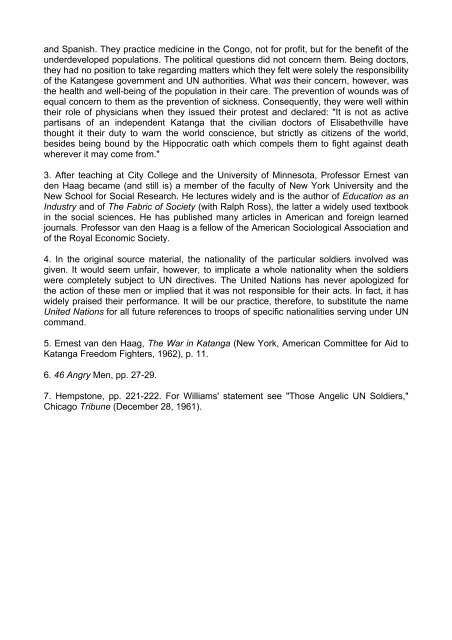
![Robert T McQuaid [rtmq@stn.net] Sent: Friday, October 29, 2004 12 ...](https://img.yumpu.com/51070071/1/190x245/robert-t-mcquaid-rtmqstnnet-sent-friday-october-29-2004-12-.jpg?quality=85)

